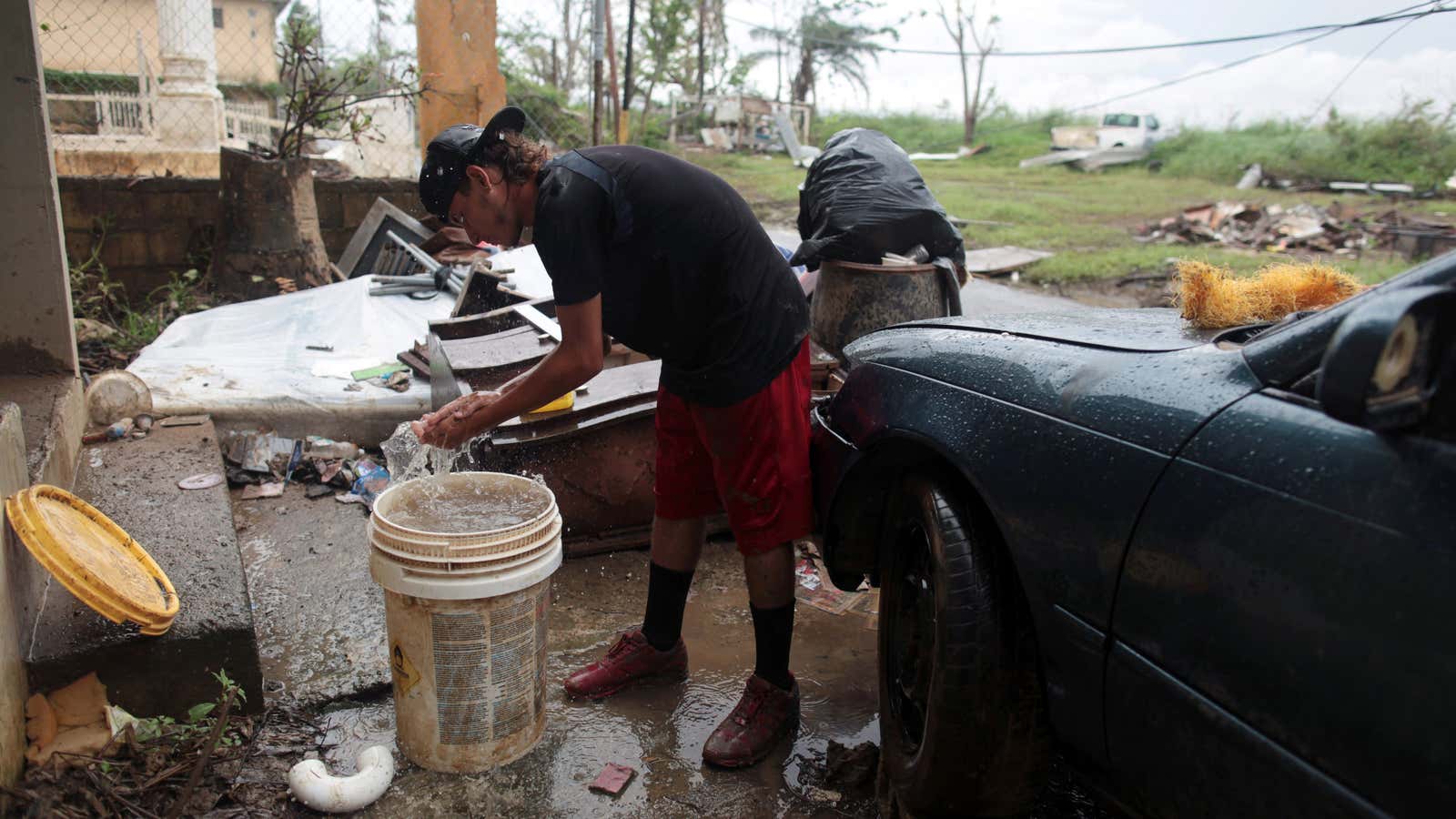It’s been more than five weeks since hurricane Maria made landfall in Puerto Rico, and life in the island is still filled with uncertainty: How many people died? When will power come back? How many people will end up leaving for good?
In this series, Quartz is examining questions Puerto Ricans are navigating. Here’s the first installment, on Leptospirosis, a bacterial disease that can be deadly if left untreated.
San Juan, Puerto Rico—Conditions are ripe for disease in Puerto Rico. The storm and subsequent rains left pools of standing water that have become breeding ground for mosquitoes. People are living many to a house or shelter, as they concentrate near sources of power and running water. Those without it resorted to potentially contaminated streams and rivers to wash their clothes and bathe. The piles of debris, which still line many streets, are a haven for vermin.
There’s been outbreaks of gastroenteritis and conjunctivitis. There’s also more than 70 suspected cases of Leptospirosis, a disease transmitted by the urine of infected animals, including mice and dogs.
It’s still unclear whether Leptospirosis is spreading or not. Samples from the suspected cases have been sent to the US for testing. “The tests are fairly complicated,” says Henry Walke, chief of the bacterial special pathogens branch the US’s Centers for Disease Control and Prevention (CDC.) It takes about four days to conclude them, he adds. The first 10 cases were reported the second week of October; a week later, they had gone up to 73 suspected cases. However, so far officials say they have only obtained confirmed results for four of those cases: two patients died; the other two are hospitalized.
Walke, and Puerto Rico’s state epidemiologist, Carmen Deseda, say they are waiting for the rest of the test results to evaluate whether there’s been an outbreak or not. Other illnesses, they point out, including dengue and the flu have the same symptoms, such as fever. Puerto Ricans should be cautious about those diseases as well, they add.
In the meantime, they say, they are treating all patients with Leptospirosis symptoms with antibiotics. They are also spreading the word about contamination risks, asking people to avoid walking barefoot and distributing chlorine tablets to disinfect water. Trucks, too, have been distributing water to people with no access to it.
“We’re deploying all these strategies,” said Deseda. “Time will tell how efficient we were in spreading that message.”
She and Walke expect the threat of disease to go down as power and water services are restored. When that will be is yet another unknown.
